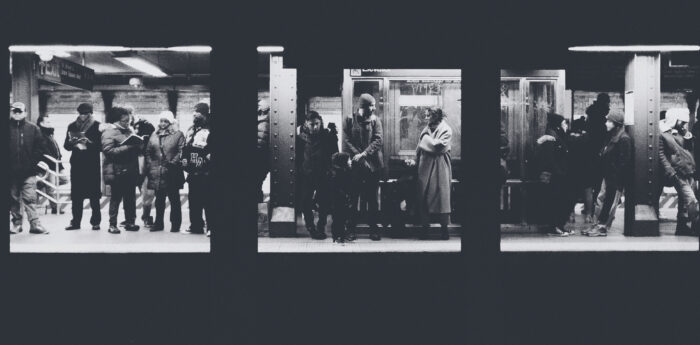
In turn, we use cookies to measure and obtain statistical data about the navigation of the users. You can configure and accept the use of the cookies, and modify your consent options, at any time.

It is no secret that our current way of doing things isn’t sustainable. According to the World Wildlife Foundation, we typically consume in less than 8 months resources that it takes the world a year to produce or regenerate – as expressed in “Earth Overshoot Day” (August 21 in 2020), which is the date from which we begin using resources we won’t get back.
It is easy to poke holes in the idea of Earth Overshoot Day. One common point of criticism is that once we have nearly exhausted one resource, we tend to find a replacement resource we can use instead – thus solving the problem. Still, it cannot be denied that massive resource use stresses the environment and contributes to climate change. Felling more trees than we plant is a major contributor to growing net carbon emissions, using fossil fuel resources directly impacts the climate, and overusing crop lands degrades the soil with potentially dire future consequences. With a growing world population, and especially a rapidly growing global middle class, it looks like the strain on global resources will increase, making it even more difficult to protect the environment.

A shift to consuming less would certainly benefit the world. But is it realistic to imagine that we will take this step? When asked, most people would probably say that they are willing to do something for the climate. Many do things like sorting their waste, buying something second hand once in a while, eating organically grown food, or buying a new car that doesn’t guzzle quite as much fuel as the old one. Yet however well-intentioned, such small individual acts are not enough to really stop environmental destruction. We still want to fly out on holidays once or twice a year, we still want a car of our own, we still want new clothes and new shoes even though what we have isn’t really worn out, and we still want a new kitchen every seven to ten years. We may not need these things, but since we can afford them, why not buy them? What’s the use of money if not to spend it?
There is usually a connection between a person or family’s wealth and their carbon footprint. Indeed, a study from 2019 published in Environment International found that ‘carbon inequity exists in that per capita carbon footprint generally increases with household income.’ As we tend to correlate income with success, we could even say that the more successful you are, the bigger your carbon footprint usually is.
Not just individuals and households measure their success by income and consumption – so, too, do nations. Countries are often compared by their GDP, which is basically a measure of how many goods and services are produced in the country. If citizens begin to consume less, the GDP suffers, and the country is considered poorer.
‘A shift to consuming less would certainly benefit the world. But is it realistic to imagine that we will take this step?’
In fact, the problem is deeper than that: if citizens start consuming less, it’s not just the country’s GDP that suffers. The income of companies supplying products and services also suffers, which means that they will have to downsize and lay off people, which in turn hurts the economy even more. This is a vicious cycle that only gets worse with increased automation, which results in companies being able to produce more per employee so that people must also consume more to prevent growing unemployment. To make our economy run, it is not enough to just keep consuming the same per capita; we must consume more, which certainly isn’t going to reduce our resource use and climate footprint. Obviously, this can’t go on. But is there any alternative while our economy is based on ever-increasing consumption?
It is not hard to imagine a world where we choose to work less, earn less, consume less and still feel content. Once our basic needs are covered, time becomes an increasingly valuable luxury. What is the point of earning more and consuming more if you don’t have the time to enjoy your wealth? As study after study shows, material wealth above a certain threshold doesn’t make you happier. Hence, it makes sense to stop working more, perhaps even working less, once we can afford the basics of living. A lot of things that make us happy doesn’t require much in the way of material consumption: spending time with your friends, learning something new, taking a walk or a bicycle ride in the sun, listening to music, playing board games or outdoor games, catching up on your reading, etc. The problem is often finding time for these things; we have to work to earn money to buy stuff that we eventually throw out, since it doesn’t really makes us as happy as we thought it would.
If we all choose to work less and consume less, there would be less of a need for products and services – but in turn, less manpower would be needed to produce these things. Since people prefer shorter workweeks, there would be less of a need to lay off workers. It all balances out; work less, produce less, consume less, get more free time. With automation, we may even be able to work less without consuming less, since products and services become cheaper – and, hopefully, less resource intensive because of an end to planned obsolescence. We may seem poorer because we don’t earn and spend as much, but we will feel richer because we have more time to enjoy ourselves. Our country’s GDP may suffer, but its happiness index will grow. It will all work out neatly. Or will it?
There is one problem with the above scenario: if citizens and companies earn less, they will pay fewer taxes. So how will governments pay for public services like infrastructure, healthcare, education and research, police and justice, administration and more?
‘Ultimately, a slower world where we all choose to consume fewer resources in favour of getting more free time may be technically and economically possible. The question is if it is socially and politically possible.’
Some public services can obviously be partly or fully automated. This saves money on employment, which in turn works out because people want to work less. The question is whether this is enough. Take healthcare. Expenses for healthcare tend to grow faster than a nation’s GDP because new treatments keep getting developed that people will demand, but which are very expensive. If we are to cut down on healthcare expenses in a slowed-down world, it may require not offering all the health services we could. This is true whether the healthcare system is publicly funded by declining taxes or privately funded by declining wages. The same may be true for other public services. Will we be able to afford equipping our police and military with the latest hardware? Will our educational institutions get access to the newest teaching and research tools? While automation may save labour and money in the long run, developing and implementing automation may be expensive in the short run, in terms of both money and manpower.

It may be possible to save expenses through reducing need. Preventive healthcare powered by new technology may cut down on healthcare expenses for treatment. Moreover, if people are happier and own less, crime may be less of a problem. Private or public surveillance technology may make crimes harder to do and easier to solve – though we should also expect criminals to be updated with the latest technology and finding new revenue streams to exploit.
Ultimately, a slower world where we all choose to consume fewer resources in favour of getting more free time may be technically and economically possible. The question is if it is socially and politically possible. Will citizens choose to give up earning and consuming as much as they are used to? Will companies accept not selling as much as before? Will governments accept a lower GDP? Will everybody be able to survive if their workhours are reduced?
The last item may be the most important one. It may well be possible for the middle and upper classes to cut down on work and consumption, but will the same be possible for the poorest in our societies, who already struggle to get by? We could see a world where the middle and upper classes slow down and enjoy their time in the sun, while the lower classes will have to work harder and compete more for the few jobs that remain in a slowed-down economy, leading to even greater downward wage pressure. We have seen automation put more stress on the lower classes, with uncertain employment and stagnated or reduced real wages; this trend may well grow stronger in the future unless there is political and social will to ensure living wages and decent living standards for all. This may turn out to be the true stumbling block for a slower world, where everybody becomes happier as the world becomes greener.
This article was published in SCENARIO Digest issue #6, May 2021. Become a member of the Institute to read the full issue